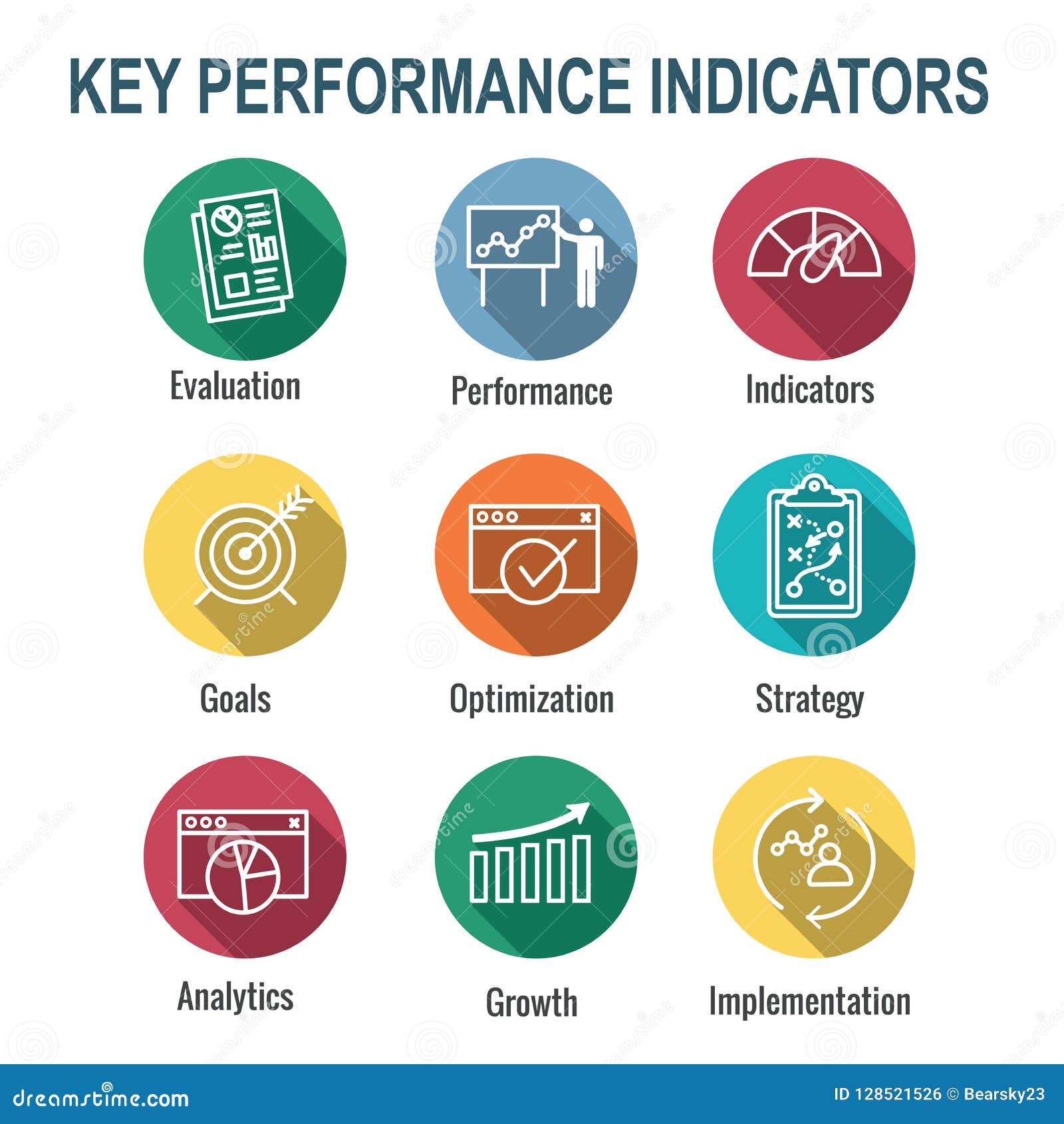How to Identify and Prioritize Key Performance Indicators (KPIs) for Growth
Tracking key performance indicators (KPIs) is crucial for startup growth and scaling. KPIs provide valuable insights into a startup’s performance, enabling data-driven decisions that drive growth and scalability. When it comes to identifying and prioritizing KPIs, startups should focus on metrics that align with their business goals and objectives.
Customer acquisition costs, retention rates, and revenue growth are essential
Developing a Scalable Business Model: Lessons from Successful Startups
Startup growth and scaling require a business model that is adaptable, efficient, and scalable. Successful startups such as Airbnb, Uber, and Slack have demonstrated the importance of developing a business model that can support rapid growth and expansion. By analyzing the strategies and characteristics of these startups, entrepreneurs can gain valuable insights into the development of a scalable business model.
Airbnb’s platform-based business model, for example, has enabled the company to scale rapidly and efficiently. By connecting hosts and travelers through a user-friendly platform, Airbnb has created a scalable and sustainable business model that has disrupted the traditional hospitality industry. Similarly, Uber’s use of data analytics and strategic partnerships has enabled the company to scale its ride-hailing service rapidly and efficiently.
Slack’s freemium business model, which offers a free version of its product with limited features, has also enabled the company to scale rapidly and efficiently. By providing a high-quality product with a user-friendly interface, Slack has attracted millions of users and established itself as a leading provider of team collaboration software.
Common characteristics of scalable business models include a focus on customer needs, a willingness to adapt and evolve, and a commitment to efficiency and sustainability. By prioritizing these characteristics, entrepreneurs can develop a business model that is capable of supporting rapid growth and expansion.
Another key factor in developing a scalable business model is the use of technology. By leveraging technology such as cloud computing, data analytics, and artificial intelligence, startups can automate processes, improve efficiency, and reduce costs. This enables them to scale rapidly and efficiently, without sacrificing quality or customer satisfaction.
Finally, strategic partnerships can also play a critical role in developing a scalable business model. By partnering with other companies or organizations, startups can gain access to new markets, technologies, and customers. This can help them to scale rapidly and efficiently, while also reducing costs and improving efficiency.
Scaling Your Team: Hiring and Managing Talent for Growth
As a startup grows and scales, it’s essential to have a talented and dedicated team in place to support the expansion. However, hiring and managing a team during periods of rapid growth can be challenging. It requires a strategic approach to attract and retain top talent, build a strong company culture, and develop effective leadership and management strategies.
One of the key challenges of scaling a team is finding the right people with the right skills and experience. This requires a clear understanding of the company’s needs and goals, as well as a well-defined recruitment strategy. Startups should focus on hiring individuals who share the company’s values and vision, and who have the potential to grow and develop with the business.
Once the right people are in place, it’s essential to build a strong company culture that supports growth and scalability. This includes creating a positive and inclusive work environment, providing opportunities for professional development and growth, and fostering a sense of community and teamwork. A strong company culture can help to attract and retain top talent, and can also drive business success.
Effective leadership and management are also critical to scaling a team. This includes setting clear goals and expectations, providing regular feedback and coaching, and empowering team members to take ownership and make decisions. Startups should focus on developing leaders who can inspire and motivate their teams, and who can drive business growth and success.
In addition to these strategies, startups can also use technology to support team scaling. This includes using recruitment software to streamline the hiring process, project management tools to improve collaboration and productivity, and performance management software to track employee performance and development.
By taking a strategic approach to hiring and managing a team, startups can build a talented and dedicated team that can support growth and scalability. This requires a focus on company culture, leadership and management, and technology, as well as a clear understanding of the company’s needs and goals.
Managing Finances for Growth: Funding Options and Financial Planning
As a startup grows and scales, managing finances becomes increasingly important. Access to capital is essential for fueling growth, and startups must carefully consider their funding options to ensure they can scale sustainably. In this section, we’ll explore the different funding options available to startups, including venture capital, angel investors, and crowdfunding, and provide guidance on how to create a financial plan that supports scaling.
Venture capital is a popular funding option for startups, particularly those with high growth potential. Venture capitalists invest in startups in exchange for equity, providing the necessary capital to fuel growth and expansion. However, venture capital can be challenging to secure, and startups must demonstrate a clear path to scalability and profitability.
Angel investors are another funding option for startups. Angel investors are high net worth individuals who invest in startups in exchange for equity. They often provide valuable guidance and mentorship, in addition to capital, and can be a great option for startups looking for funding and support.
Crowdfunding is a more recent funding option for startups. Platforms like Kickstarter and Indiegogo allow startups to raise capital from a large number of people, typically in exchange for rewards or equity. Crowdfunding can be a great way for startups to validate their product or service and raise capital, but it requires a strong marketing and outreach effort.
In addition to these funding options, startups must also create a financial plan that supports scaling. This includes budgeting, forecasting, and cash flow management. Startups must carefully manage their finances to ensure they have the necessary capital to fuel growth and expansion.
A financial plan should include a detailed budget, outlining projected income and expenses. Startups should also create a forecast, outlining projected growth and revenue. Cash flow management is also critical, as startups must ensure they have the necessary capital to meet their financial obligations.
By carefully considering their funding options and creating a financial plan that supports scaling, startups can ensure they have the necessary capital to fuel growth and expansion. This is critical for achieving startup growth and scaling, and for building a sustainable and profitable business.
Managing Finances for Growth: Funding Options and Financial Planning
As a startup grows and scales, managing finances effectively becomes crucial to sustaining momentum and achieving long-term success. Securing the right funding and creating a solid financial plan are essential to support growth initiatives and navigate the challenges of scaling. In this section, we’ll explore the different funding options available to startups and provide guidance on how to create a financial plan that supports scaling.
Startup growth and scaling require significant investments in talent, technology, and infrastructure. To fuel this growth, startups often rely on external funding sources. Venture capital, angel investors, and crowdfunding are popular options, each with its pros and cons. Venture capital firms provide significant funding in exchange for equity, while angel investors offer smaller investments in exchange for equity or convertible debt. Crowdfunding platforms, such as Kickstarter or Indiegogo, allow startups to raise funds from a large number of people, typically in exchange for rewards or equity.
When evaluating funding options, startups should consider their growth stage, industry, and financial needs. For example, venture capital may be suitable for startups with high growth potential, while angel investors may be more suitable for early-stage startups. Crowdfunding can be an effective way to raise funds for specific projects or products.
In addition to securing funding, startups must create a comprehensive financial plan that supports scaling. This plan should include budgeting, forecasting, and cash flow management. Startups should establish a budget that allocates resources effectively, prioritizing investments in growth initiatives, such as talent acquisition, marketing, and product development. Forecasting revenue and expenses helps startups anticipate financial challenges and make informed decisions. Effective cash flow management ensures that startups have sufficient liquidity to meet financial obligations and invest in growth initiatives.
A well-structured financial plan also enables startups to measure financial performance and make data-driven decisions. Key performance indicators (KPIs) such as revenue growth, customer acquisition costs, and retention rates provide valuable insights into the startup’s financial health. By tracking these KPIs, startups can identify areas for improvement and adjust their financial plan accordingly.
In conclusion, managing finances effectively is critical to startup growth and scaling. By understanding the different funding options and creating a comprehensive financial plan, startups can secure the resources needed to sustain momentum and achieve long-term success. By prioritizing financial planning and management, startups can navigate the challenges of scaling and achieve their growth objectives.
Scaling Operations: Process Optimization and Automation
As startups grow and scale, their operations become increasingly complex, making it challenging to maintain efficiency and productivity. To support growth and scaling, startups must streamline their operations and automate processes wherever possible. In this section, we’ll discuss the importance of process optimization and automation, and provide tips on how to identify areas for improvement and implement efficient workflows.
Startup growth and scaling require a scalable operational infrastructure that can support increasing demand and complexity. Manual processes and inefficient workflows can lead to bottlenecks, errors, and decreased productivity, ultimately hindering growth. By optimizing and automating processes, startups can improve efficiency, reduce costs, and enhance customer satisfaction.
To identify areas for improvement, startups should conduct a thorough analysis of their current operations, including workflows, systems, and processes. This analysis should focus on identifying bottlenecks, inefficiencies, and areas where automation can add value. Startups can use tools such as process mapping, workflow analysis, and performance metrics to identify areas for improvement.
Once areas for improvement have been identified, startups can implement efficient workflows and automate processes using technology. Automation can be achieved through various means, including software, robotics, and artificial intelligence. For example, startups can use software to automate tasks such as data entry, customer service, and marketing. Robotics and artificial intelligence can be used to automate more complex tasks, such as manufacturing and logistics.
Implementing efficient workflows and automating processes requires careful planning and execution. Startups should develop a clear strategy for process optimization and automation, including goals, timelines, and budgets. They should also ensure that all stakeholders, including employees, customers, and partners, are aligned with the strategy and understand the benefits of process optimization and automation.
Technology plays a critical role in process optimization and automation. Startups can leverage various technologies, including cloud computing, big data analytics, and the Internet of Things (IoT), to streamline their operations and automate processes. For example, cloud computing can provide startups with scalable infrastructure and applications, while big data analytics can provide insights into operational efficiency and customer behavior.
By optimizing and automating processes, startups can improve efficiency, reduce costs, and enhance customer satisfaction, ultimately supporting growth and scaling. By leveraging technology and implementing efficient workflows, startups can create a scalable operational infrastructure that can support increasing demand and complexity, driving long-term success and growth.
Measuring and Optimizing Customer Experience for Growth
Delivering exceptional customer experiences is crucial for driving growth and retention in startups. As the business scales, it’s essential to prioritize customer satisfaction and continuously gather feedback to inform improvements. By doing so, startups can increase customer loyalty, reduce churn rates, and ultimately drive revenue growth.
To measure customer experience, startups can leverage various metrics, such as Net Promoter Score (NPS), Customer Satisfaction (CSAT), and Customer Effort Score (CES). These metrics provide valuable insights into customer perceptions and pain points, enabling startups to identify areas for improvement. Additionally, startups can collect feedback through surveys, social media, and customer reviews to gain a deeper understanding of customer needs and preferences.
Data-driven improvements are critical to optimizing the customer experience. Startups can analyze customer feedback and behavioral data to identify trends and patterns, informing product development, marketing strategies, and customer support initiatives. By prioritizing customer-centricity, startups can create a competitive advantage, driving growth and scaling through increased customer loyalty and retention.
Moreover, startups can leverage technology to enhance the customer experience. Implementing tools such as customer relationship management (CRM) software, chatbots, and personalization platforms can help streamline customer interactions, improve response times, and deliver tailored experiences. By investing in customer experience technologies, startups can scale their customer-facing operations efficiently, ensuring that customer satisfaction remains high as the business grows.
Ultimately, measuring and optimizing customer experience is an ongoing process that requires continuous effort and iteration. By prioritizing customer-centricity and leveraging data-driven insights, startups can drive growth and scaling, maintaining a competitive edge in their respective markets. As the startup ecosystem continues to evolve, delivering exceptional customer experiences will remain a critical factor in determining long-term success and scalability.
By focusing on customer experience, startups can create a loyal customer base, drive positive word-of-mouth, and ultimately fuel growth and scaling. As startups navigate the challenges of scaling, prioritizing customer experience will remain a key differentiator, enabling them to maintain a competitive advantage and achieve sustainable growth over the long term.
Sustaining Growth: Overcoming Common Challenges and Avoiding Pitfalls
As startups scale, they often encounter a range of challenges that can threaten their growth and sustainability. Maintaining company culture, managing complexity, and avoiding burnout are just a few of the common pitfalls that startups must navigate. To overcome these challenges and sustain growth over the long term, startups must develop effective strategies for managing growth and mitigating risk.
One of the most significant challenges facing scaling startups is maintaining company culture. As the organization grows, it can be difficult to preserve the values, mission, and sense of community that defined the company in its early days. To overcome this challenge, startups must prioritize cultural development, investing in programs and initiatives that foster a strong sense of community and shared purpose. This can include regular team-building activities, mentorship programs, and open communication channels.
Managing complexity is another significant challenge facing scaling startups. As the organization grows, its systems, processes, and infrastructure must also evolve to support increased demand. To manage complexity effectively, startups must invest in scalable systems and processes, leveraging technology to streamline operations and improve efficiency. This can include implementing project management tools, automating routine tasks, and developing data-driven decision-making frameworks.
Avoiding burnout is also critical for sustaining growth and scaling. As startups grow, their teams often work longer hours and take on additional responsibilities, leading to increased stress and burnout. To avoid burnout, startups must prioritize employee well-being, investing in programs and initiatives that support work-life balance and employee health. This can include flexible work arrangements, mental health resources, and employee recognition programs.
In addition to these challenges, scaling startups must also navigate a range of external risks, including market volatility, regulatory changes, and competitive disruption. To mitigate these risks, startups must develop effective risk management strategies, investing in market research, regulatory compliance, and competitive intelligence. This can include conducting regular market analysis, engaging with regulatory experts, and monitoring competitor activity.
By understanding the common challenges and pitfalls associated with startup growth and scaling, entrepreneurs can develop effective strategies for overcoming these obstacles and sustaining growth over the long term. By prioritizing cultural development, managing complexity, avoiding burnout, and mitigating risk, startups can build a strong foundation for sustainable growth and success.
Ultimately, sustaining growth and scaling requires a deep understanding of the startup ecosystem and the challenges that come with rapid growth. By staying focused on their core mission and values, investing in scalable systems and processes, and prioritizing employee well-being, startups can overcome the common pitfalls of growth and achieve long-term success.
As the startup landscape continues to evolve, the importance of sustaining growth and scaling will only continue to grow. By developing effective strategies for managing growth and mitigating risk, entrepreneurs can build successful, sustainable businesses that drive innovation and create value for years to come.







